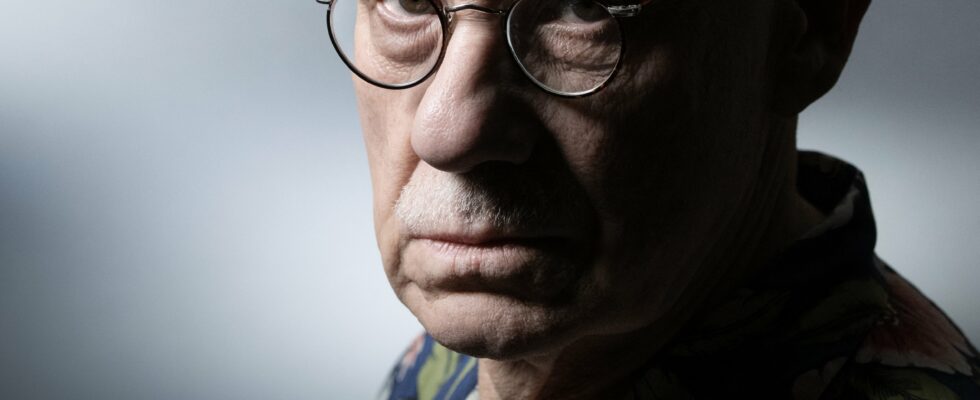We know it in advance. Those who absolutely love James Ellroy will absolutely love his latest book. The Enchanters (Rivages). They will use the usual adjectives to describe it: jubilant, transgressive, out of the ordinary. They will love its unhealthy hero, Freddy Otash, a corrupt ex-cop, ex-gossip journalist, converted into a private investigator, already encountered in Extortion And General panic. They will delight in seeing stars of politics and cinema fall from their pedestals. They will applaud with both hands the crudeness of the vocabulary, the telegraphic style, the absence of political correctness. Others, including ourselves, will dare, on tiptoe, to express their weariness after reading a text that is exhausting in its form and gratuitous in its substance, as it turns into a game of massacre for personalities already scratched a thousand times by literature and cinema.
Yet we have not always been insensitive to the charms of the self-described “mad dog” of American literature. We had enjoyed his debut with Bloody moon and the black dahliawe followed him for a long time on his dark paths marked by debauchery and corruption. We enjoyed a new reading of the history of the United States, we appreciated the violence mixed with black humor. Under his pen, Los Angeles was far from the clichés of starlets on glossy paper and we loved it. But the decades have passed and the work has lost its brilliance and originality.
His project? To show “the true face” of famous people
The 650 pages of Enchanters are just another variation on the same obsessions. That the present is not James Ellroy’s thing, that he hates modernity, telephones, computers, after all, that is his right, but is it really necessary to inflict on us endlessly the novel of America from the 1940s to the early seventies? This book begins in 1962. Marilyn has just been found dead, the Kennedys are doing everything to hide their escapades and Hollywood studios are more than ever unfrequented places. The writer, never safe from a megalomaniacal tendency, has long since abandoned the title of “master of the crime novel” to claim to be a historical-political chronicler of his country. But by dint of destroying American myths, of delving into their depths, by dint of hating everything, everyone, the 1960s, Marilyn, corrupt politicians…, all that remains is the impression of an author going round in circles.
In his project of showing the “true face” of famous personalities, James Ellroy seems to forget the reader on the other side of the page. The plot is abundant, it goes in all directions, a second thread, then a third that is difficult to follow. Yesterday, we liked the ambitious side of his romantic frescoes, now the word that emerges is crazy. Yesterday, we liked his humor bordering on burlesque, now it turns into a crude farce that only amuses him. As for his syncopated, frenetic writing, adopted since the Los Angeles Quartetthought of as music, it has become so bouncy that it ends up exhausting. Yesterday imagined to give rhythm, it resonates like an automatism.
At 76, author of 23 novels, James Ellroy seems to rest on his reputation. In France, he acquired it very early and lastingly. Is it the style of his first books, a total break with French production, that transformed his readers into unconditional fans? His past as a drug addict, a delinquent who had been to prison, his character as a nutcase but not crazy, totally megalomaniac but living simply? His ability to escape from boxes (he likes order but only features corrupt cops), his reactionary leanings coupled with transgressive impulses? A bit of all that, no doubt. While he is disturbing in the United States where his books are sold mainly in paperback, here he is lining up successes. With the black dahlia of course, his masterstroke, but also with more recent ones, like Perfidia released in 2015 with 73,000 copies in hardback and 64,000 in paperback, according to Edistat.
If there is one thing that can be recognized in James Ellroy, it is his loyalty. To his French-speaking readers whom he visits with each book release. To his publishing house in France, Rivages, which he has never left. To his editor, François Guérif, to whom The Enchanters are dedicated. Too bad his constancy also extends to his obsessions, his rages and his paranoias. In literature, loyalty is not necessarily a quality.
The Enchantersby James Ellroy. Translated from English (United States) by Sophie Aslanides and Séverine Weiss, Rivages, 672 P., €26
.
